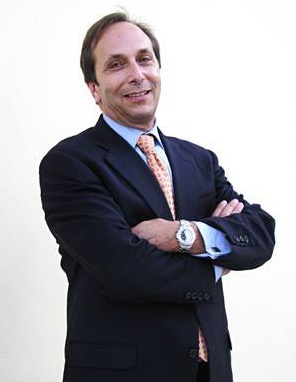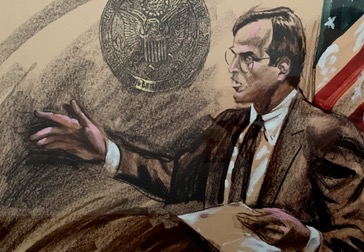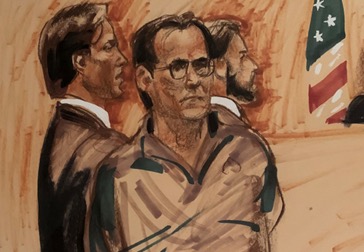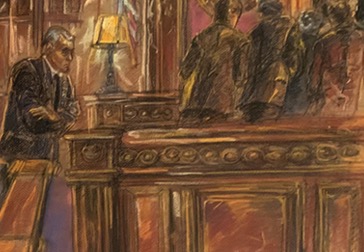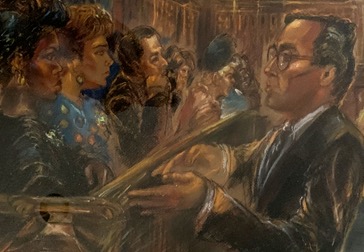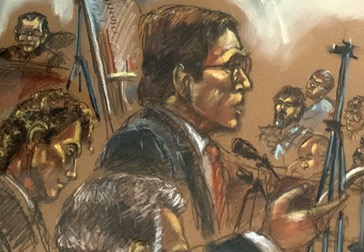FIFA Convictions A Shot Across Bow Of Sports Corruption
After U.S. prosecutors last month secured convictions of two former South American soccer officials in the first trial from the U.S. FIFA corruption probe, others in soccer and other international sports organizations should be wary of potential further U.S.-led probes into an industry rife with corruption allegations.
Late last month, a federal jury in Brooklyn found Juan Angel Napout, 59, the former president of the South American soccer confederation CONMEBOL, and Jose Maria Marin, 85, a former Brazilian soccer federation president, guilty of racketeering conspiracy and other related charges for their role in a bribery scheme involving marketing and media rights for international soccer tournaments including the Copa America and Copa Libertadores.
They were the first two trial convictions stemming from a set of indictments targeting more than 40 soccer officials and marketing executives, many of whom had previously pled guilty and cooperated with the government’s investigations. A third defendant who stood trial, Manuel Burga, 60, the former president of the Peruvian soccer federation, was acquitted of the sole charge he faced.
But while only two were convicted, experts say the trial was still a major win for the prosecutors from the U.S. Attorney’s Office of the Eastern District of New York, proving their corruption theories and sending a warning to others not only in FIFA, but in other international sports organizations about the long reach of U.S. authorities in rooting out corruption.
“These convictions are a stinging rebuke of the culture and the ‘head in the sand’ mindset that was long present at FIFA,” said Jacob S. Frenkel, a former federal criminal prosecutor now a member at Dickinson Wright PLLC. “…The constituents of these country and regional federations are looking for their representatives to be leaders, not cheaters.”
Prosecutors brought evidence that Napout and Marin had agreed to receive a total of $10.5 million and $6.55 million in bribes, respectively, between 2010 and 2016 from soccer media and marketing companies in order to secure their support in winning lucrative television, sponsorship and advertising rights to the biggest South American soccer tournaments.
The jury did not convict on all the charges against the men, including clearing Napout of money laundering charges, indicating the jurors carefully parsed through the evidence presented over the five-week trial. Evidence included multiday testimony from cooperating witnesses, notably sports marketing executive Alejandro Burzaco, who is the former principal and CEO of Torneos y Competencias SA, one of the main sports marketing companies that paid bribes; and former president of the Colombian soccer federation Luis Bedoya.
The jury did find both Napout and Marin guilty of racketeering conspiracy, count one of the trial indictment, and also found them both guilty of related wire fraud charges. Marin was additionally found guilty of money laundering.
“It is now a jury finding that validates the core of the FIFA case that there was widespread corruption in international soccer and led to very material benefits to the recipients and to the companies that bribe,” said Timothy Heaphy, the chair of Hunton & Williams LLP white collar defense and internal investigations practice. “Overall big picture is that this is good news for the government despite the acquittal.”
The convictions could “embolden” prosecutors to investigate other alleged corruption not only in FIFA but in other international sports organizations as well, taking advantage of the long reach of U.S. anti-corruption laws, said Mark Conrad, a law and ethics professor at Fordham University’s Gabelli School of Business.
The structure of international sports, led by federations and regional confederations that serve as governing bodies for the sport and competition organizers, provides opportunity for bribery and corruption if the right checks are not put in place.
“If I was in the International Olympic Committee I would be aware of the possibility of investigations of their activities in Rio which is already occurring,” Conrad said. “I suspect I wouldn’t be sleeping easily if I were some members.”
The IOC is facing allegations of bribery and vote-buying for selecting host cities, including the recent 2016 Summer Olympics in Rio de Janeiro, Brazil, as well as criticism of how it is handling doping. Even with FIFA, testimony presented in the case suggested the corruption could spread much wider. Burzaco, the former Torneos executive, said on the stand that he negotiated an estimated more than $160 million in bribe payments to at least 30 different individuals over the course of his career.
However, further investigation into soccer or potential new investigations into other international sports may not be a priority of the new U.S. Department of Justice under President Donald Trump and Attorney General Jeff Sessions.
“I just think the contrasting view is that in this current justice department there is just a decreasing bandwidth to pursue these kind of cases,” said Heaphy, a former U.S. attorney for the Western District of Virginia. “If they are going to do aggressive immigration enforcement and turn to a sort of ‘War on Drugs’ approach … then there are just fewer bodies. You just can’t do everything.”
Reports this week said that Sessions is expected to reverse a prior policy to allow federal prosecutors to pursue charges for marijuana-related crimes in states that have legalized the drug.
Still, Heaphy said the FIFA case had all the elements that federal prosecutors look for in terms of the scope of the fraud, the amount of money involved and the public interest in the integrity of the game, reasons the prosecutors in the Eastern District of New York brought the case in the first place.
One thing that is clear: The convictions show that officials around the world are not safe from U.S. authorities just because they are primarily based in another country or continent.
Many countries’ anti-corruption laws are broad,” Frenkel said. “The difference here is that U.S. authorities do not hesitate to use their long arms and extend the reach of U.S. law when the government perceives the conduct has a negative effect on U.S. companies and individuals.”
The case is U.S. v. Napout et al., case number 1:15-cr-00252, in the U.S. District Court for the Eastern District of New York.
By Zachary Zagger
https://www.law360.com/trials/articles/998624/fifa-convictions-a-shot-across-bow-of-sports-corruption?nl_pk=0e208b1d-e5d3-4152-9c46-2c5e800ef3b9&utm_source=newsletter&utm_medium=email&utm_campaign=trials

